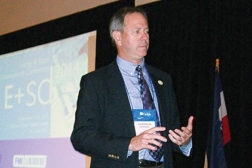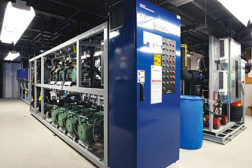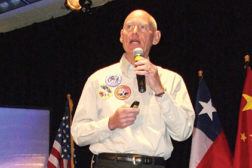Home » natural refrigerants
Articles Tagged with ''natural refrigerants''
Research Reveals Optimal Refrigerant Choice is Dependent on Application, Setting
Read More
Dec. 23, 2014: Nestlé to Use Natural Refrigerants for All New Ice Cream Freezers
Originally Making This Commitment in Europe, the Company Is Now Making This Pledge Global
December 23, 2014
Naturals Get New Push at Conferences
Atmosphere America Examines Regulatory Landscape, Cost Concerns
Read More
Sept. 22, 2014: Natural Refrigerants Make Sense in Supermarket Applications, Says Carrier Study
Survey Provides Insights from European Food Retail Professionals
September 22, 2014
HVAC Contractors Adapting to Changes
Keeping Up With Refrigeration Sector
September 8, 2014
July 14, 2014: Danfoss Discusses CO2 Refrigeration Benefits at ATMOsphere America
Presentation Showcases Impact of CO2 Systems on Climate and Energy Efficiency
July 14, 2014
June 27, 2014: New ASHRAE Handbook Focuses on Refrigeration
Chapters on Ammonia and Carbon Dioxide Refrigeration Systems Have Been Updated
June 27, 2014
Safety, Security Top 2014 IIAR Conference
Industry Experts, Former Astronaut, Homeland Security Official Offer Comments
Read More
Feb. 12, 2014: Coca-Cola Installs 1 Millionth HFC-Free Cooler Globally
Company Working Toward 2015 Goal to Use Natural Refrigerants for All New Cold-Drink Equipment
February 12, 2014
Copyright ©2024. All Rights Reserved BNP Media.
Design, CMS, Hosting & Web Development :: ePublishing






